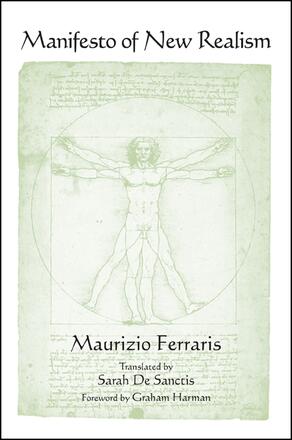
Manifesto of New Realism
Alternative formats available from:
Retraces the history of postmodern philosophy and proposes solutions to overcome its impasses.
Description
Philosophical realism has taken a number of different forms, each applied to different topics and set against different forms of idealism and subjectivism. Maurizio Ferraris's Manifesto of New Realism takes aim at postmodernism and hermeneutics, arguing against their emphasis on reality as constructed and interpreted. While acknowledging the value of these criticisms of traditional, dogmatic realism, Ferraris insists that the insights of postmodernism have reached a dead end. Calling for the discipline to turn its focus back to truth and the external world, Ferraris's manifesto—which sparked lively debate in Italy and beyond—offers a wiser realism with social and political relevance.
Maurizio Ferraris is Full Professor of Philosophy and Director of the Laboratory for Ontology at the University of Turin, Italy. His books include Goodbye, Kant! What Still Stands of the Critique of Pure Reason, also published by SUNY Press. Sarah De Sanctis is a PhD candidate in contemporary forms of realism in literature and philosophy at the London Graduate School and a translator for the Department of Philosophy at the University of Turin.
Reviews
"In the new atmosphere of Anglophone continental thought, realism is not just a viable option but is arguably home to the most promising innovations of our time. Ferraris will serve as a welcome new influence." — from the Foreword by Graham Harman